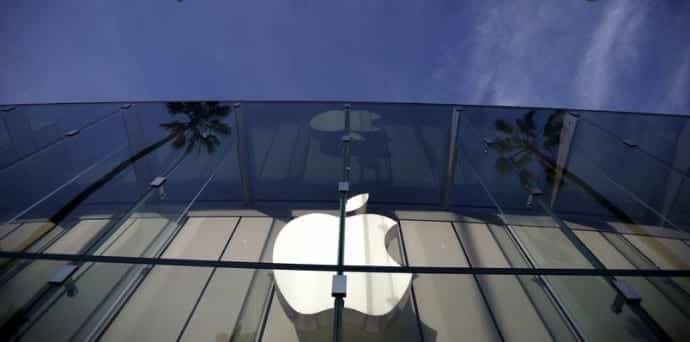This is why Apple is getting support from Google, Facebook, and Twitter in its fight against the FBI
Even though the legal battle between the FBI and Apple intensifies over access to a San Bernardino terrorist’s iPhone, Apple is maintaining that it is defending the privacy and safety of all iPhone users by resisting the government. Looks like almost everyone in Silicon Valley such as Google, Microsoft and Facebook are siding with Apple in its fight against the FBI.
In support of Apple’s effort to prevent the U.S. government from compelling it to help unlock an iPhone used by one of the San Bernardino terrorists, more than 25 major tech firms, media and civil liberties groups are filing briefs this week. According to industry lawyers, Microsoft, Verizon, Facebook, Google, Amazon and Yahoo are among the tech and telecom giants preparing to file or join friend-of-the-court briefs. Twitter will also be seen supporting Apple in motion, though it is not clear if it will join the combined filing.
“The government can put me in jail,” said Larry Downs, a scholar at Georgetown University’s Center for Business and Public Policy. “Google, Facebook and Twitter cannot.” That makes the details of the iPhone case especially important.
The FBI says it’s only asking for narrow technical assistance on a phone used by one of the shooters who killed 14 people in San Bernardino by bypassing its security features. “We couldn’t look the survivors in the eye if we did not follow this lead,” FBI Director James Comey said online. However, Apple opposes that a magistrate’s order would compel it to create software that will make other iPhones susceptible to future hacking by authorities and criminals.
It’s not just that the U.S. government wants Apple to unlock the iPhone that was once owned by one of the two terrorists that executed the San Bernardino massacre — it has unlocked iPhones for the government in the past. The government now wants Apple to build a software backdoor into the iPhone, and that’s where Apple draws the line.
“The implications of the government’s demands are chilling,” Cook wrote. “If the government can use the All Writs Act [of 1789] to make it easier to unlock your iPhone, it would have the power to reach into anyone’s device to capture their data.”
All the companies who are showing support for Apple in the past had protested loudly after former government contractor Edward Snowden exposed the scope of National Security Agency (NSA) surveillance programs that gathered user information and even tapped their networks without the knowledge of the user. The companies have gone to court and Congress to restrict that kind of government data collection, while also fighting efforts to weaken the encryption codes that protect your messages from snooping eyes.
Yet, privacy advocates have long complained that those companies make billions of dollars by gathering all kinds of personal information, including records of customers’ online behavior, and using it to target them for advertising.
Apple CEO Tim Cook took shots at his competitors, by boasting that Apple doesn’t depend on ad revenue for most of its services. As he’s said more than once: “When an online service is free, you’re not the customer. You’re the product.”
But even Apple gathers some customer data, while experts say that it is not very clear if the company’s privacy stand is a big selling point for most consumers.
Companies like Google and Facebook argue they take efforts to protect the data that they collect. For example, Facebook tracks users’ likes and actions so the company can show them ads targeted to people with similar characteristics. But Facebook made it clear that it does not provide advertisers access to information linked to any individual by name.
Internet companies do function in a very different way from traditional data brokers such as credit bureaus, which make their money by selling all kinds of information on individuals – from their income and bill-paying history to where they have lived and worked.
Rachel Whetstone, who was then a Senior Vice President for the giant Internet in a company speech last year said, “Google does not sell your personal information. Nor do we share it without your permission except in very limited circumstances,” such as when faced with a court-issued warrant. Like Facebook, Google says it pushes back against government requests that seem unjustified or over-broad.
In contrast to Google’s business, Whetstone said, government surveillance often involves data “collected for an entirely separate purpose,” basically from people who didn’t expect it would be seen by authorities. She said Google gives users the ability to restrict the collection of their data.
Whetstone was speaking in Europe, where many national governments that limit what businesses can do with individuals’ data because of its strong privacy laws. “The American view is we need protection from the government misusing information, rather than we need the government to protect us from other people misusing our information,” said Downs.
Still, some privacy advocates say the iPhone clash highlights their worries about data collection. Cindy Cohn, executive director of the Electronic Frontier Foundation said consumers should understand that any information they give to companies could be sought by the government one day.
“I’m glad these companies are coming together to support Apple,” she said. “It ultimately may raise some hard questions for them about how much information they need to collect, and how they secure it, and how long they keep it.”
The case between Apple and the FBI has drawn worldwide attention and the result might decide as to how the government could intrude into our privacy and security, forever. Online social networking platforms thrive on user privacy, which is critical for users as well. If a law that enables government access to user information is eventually passed, it could possibly trigger the downfall of massive digital services such as Facebook, Twitter, and several others.
